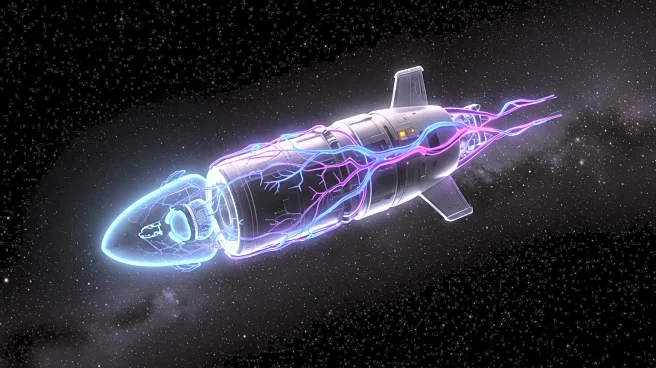What is the story about?
What's Happening?
Following the return of NASA's SpaceX Crew-10 mission, the International Space Station's Expedition 73 is conducting research on how space affects the circulatory system. The crew is performing ultrasound scans to detect blood clots and studying blood flow in microcirculatory systems. This research is part of the CIPHER suite, which examines the impact of space travel on astronauts' bodies and minds. The study aims to improve health outcomes for astronauts during long-duration missions and contribute to medical advancements on Earth.
Why It's Important?
Understanding the effects of space travel on the human body is crucial for future missions to Mars and beyond. The research conducted by Expedition 73 could lead to improved health protocols for astronauts, ensuring their safety and well-being during extended periods in space. The findings may also have implications for medical treatments on Earth, particularly in areas related to circulatory health. This research supports NASA's goal of maintaining astronaut health and advancing human space exploration.
What's Next?
The crew will continue their research throughout their mission, with ongoing monitoring of their health. The data collected will be analyzed to develop strategies for mitigating the effects of microgravity on the circulatory system. NASA will use the insights gained to prepare for future missions, potentially leading to new technologies and medical practices that enhance astronaut health and performance.














